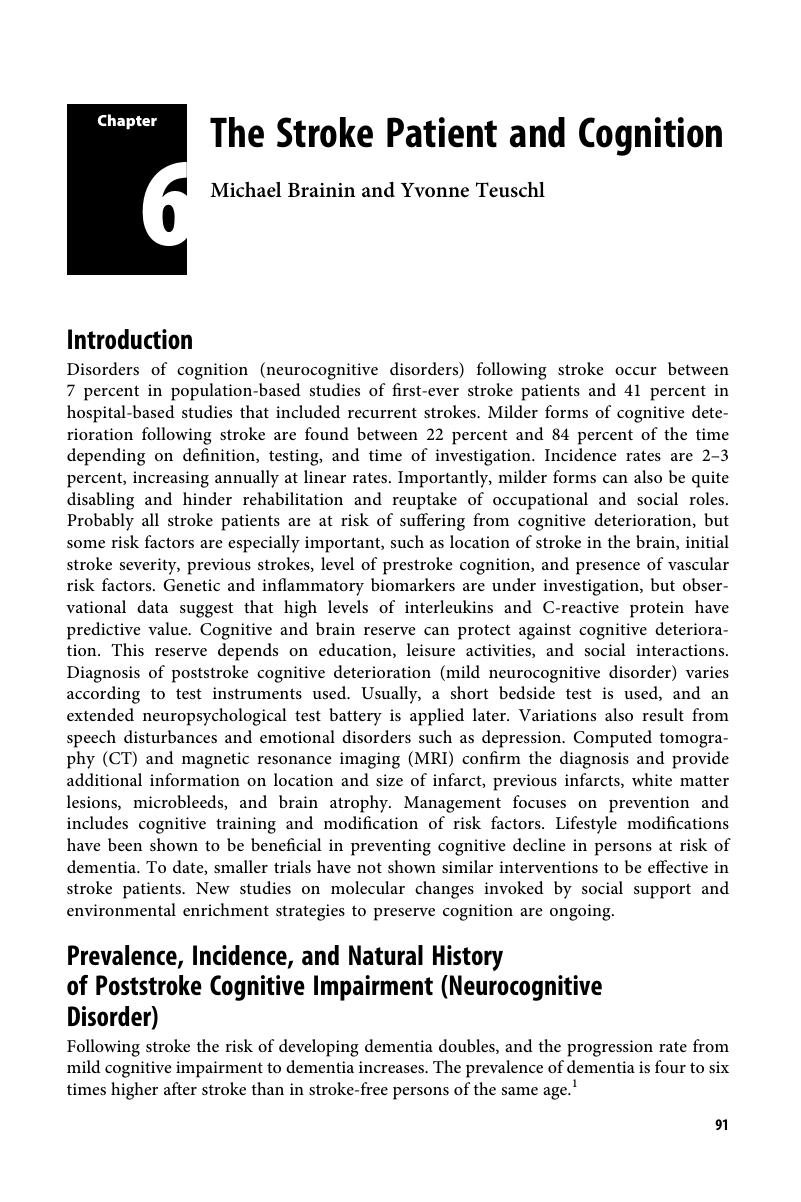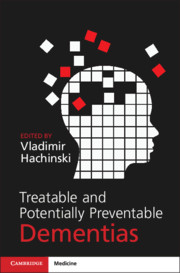Book contents
- Treatable and Potentially Preventable Dementias
- Treatable and Potentially Preventable Dementias
- Copyright page
- Contents
- Contributors
- Foreword
- Preface
- Chapter 1 Pathophysiology & Epidemiology
- Chapter 2 Diagnosis of Potentially Preventable Dementias
- Chapter 3 The Brain at Risk Stage
- Chapter 4 The Patient with Cognitive Impairment
- Chapter 5 Cognitive Decline in Transient Ischemic Attacks or Minor Strokes
- Chapter 6 The Stroke Patient and Cognition
- Chapter 7 Reversible Dementias
- Chapter 8 Prevention of Dementia
- Conclusion
- Index
- References
Chapter 6 - The Stroke Patient and Cognition
Published online by Cambridge University Press: 16 June 2018
- Treatable and Potentially Preventable Dementias
- Treatable and Potentially Preventable Dementias
- Copyright page
- Contents
- Contributors
- Foreword
- Preface
- Chapter 1 Pathophysiology & Epidemiology
- Chapter 2 Diagnosis of Potentially Preventable Dementias
- Chapter 3 The Brain at Risk Stage
- Chapter 4 The Patient with Cognitive Impairment
- Chapter 5 Cognitive Decline in Transient Ischemic Attacks or Minor Strokes
- Chapter 6 The Stroke Patient and Cognition
- Chapter 7 Reversible Dementias
- Chapter 8 Prevention of Dementia
- Conclusion
- Index
- References
Summary

- Type
- Chapter
- Information
- Treatable and Potentially Preventable Dementias , pp. 91 - 109Publisher: Cambridge University PressPrint publication year: 2018



